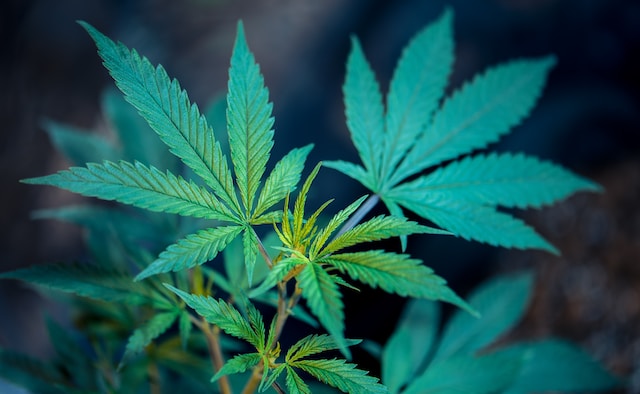US Code 280E Updates: How a Cannabis CPA Can Help Your Business

As Certified Public Accountants (CPAs) specializing in cannabis accounting, we understand the unique challenges faced by THC businesses due to the federal tax code. US Code 280E, specifically designed for controlled substances, has a significant impact on the financial landscape of cannabis companies. Staying informed about the latest updates and strategies related to 280E compliance is essential for cannabis accountants and marijuana business owners alike.
At The THC CPAs, our cannabis CPAs aim to inform our cannabis-centered business friends and fellow business owners about an essential update to US code 280E that was reintroduced in April 2023 by Representative Earl Blumenauer, founder of the Congressional Cannabis caucus.
We believe in empowering our clients with knowledge while providing guidance to navigate the complexities of US Code 280E. So, whether you are a seasoned cannabis entrepreneur or a CPA seeking to expand your understanding of new tax laws, our goal is to equip you with the tools and information necessary to make financial decisions, optimize tax liabilities, and ensure compliance with US Code 280E.
Understanding US Code 280E
US Code 280E was established as a response to a case involving a drug dealer’s tax deductions. The purpose of this code is to disallow businesses involved in the trafficking of controlled substances from deducting ordinary business expenses on their federal income tax returns. While originally intended to target illegal drug operations, it has had a significant impact on state-legalized cannabis businesses due to the federal classification of cannabis as a controlled substance.
Key Provisions and Limitations of 280E
Under 280E, businesses engaged in the sale of controlled substances, including cannabis, are unable to deduct most ordinary business expenses typically allowed for other legal businesses. This includes expenses such as rent, employee wages, marketing costs, and utilities.
While 280E restricts most deductions for cannabis businesses, there are exceptions and limitations for businesses selling products with THC content below the federally defined threshold of 0.3%. These businesses may be eligible for deductions related to the production and sale of non-THC products, such as hemp-based products, CBD oils, or industrial hemp.
Impact of 280E on Cannabis Businesses
The inability to deduct ordinary business expenses under 280E significantly increases the taxable income of cannabis businesses. This, in turn, results in higher federal tax liability, often at a rate much higher than that of other industries. The increased tax burden can impact cash flow, profitability, and the ability to reinvest in the business.
Since many expenses are non-deductible, businesses must carefully allocate costs between non-deductible and deductible activities to optimize tax liability. Accurate bookkeeping and record-keeping are crucial to ensuring compliance and avoiding potential audits or penalties. Financial planning becomes essential to navigate the complexities of 280E and strategize ways to maximize deductions within the limitations imposed.
What is Deductible vs Non-Deductible for THC Businesses?
Distinguishing between non-deductible and deductible expenses for businesses in the cannabis industry under US Code 280E is crucial for optimizing tax liability and ensuring compliance.
Non-Deductible Expenses
Non-deductible expenses refer to costs that cannot be claimed as ordinary business deductions under 280E. These expenses directly relate to the production, distribution, or sale of controlled substances, such as cannabis.
Examples of non-deductible expenses include:
- Cost of cannabis inventory: The cost of purchasing or producing cannabis products for sale is non-deductible. This includes expenses associated with cultivation, harvesting, processing, and packaging.
- Marketing and advertising expenses: Costs incurred for marketing and advertising cannabis products, such as print ads, digital marketing, and promotional events, are typically non-deductible.
- Sales and distribution expenses: Expenses related to the transportation, storage, and distribution of cannabis products, including shipping costs and warehousing fees, fall under non-deductible expenses.
- Cannabis-related research and development: Research and development costs directly associated with cannabis or THC products are generally non-deductible.
Deductible Expenses
Deductible expenses are those that can be claimed as ordinary business deductions, even for THC businesses subject to 280E restrictions. These expenses are typically associated with activities not directly involved in the production or sale of controlled substances.
Examples of deductible expenses include:
- Cost of goods sold (COGS): One crucial deduction allowed under 280E is the cost of goods sold. This includes direct expenses associated with producing or purchasing the cannabis products, such as raw materials, labor costs, packaging materials, and overhead costs directly related to production.
- Non-THC product sales: If a cannabis business also sells non-THC products, such as hemp-based products, CBD oils, or industrial hemp, the expenses related to those specific products can be deductible.
- General business expenses: Ordinary business expenses that are unrelated to the production or sale of controlled substances can be deductible. These may include rent, employee wages, professional services (accounting, legal, consulting), utilities, office supplies, and insurance costs.
How Does Code 280E Affect Marijuana Business Deductions?
Overall, what US Code 280E would do is allow cannabis-based businesses to reap the benefits that other types of businesses get in terms of deductions. This would enable even expenses directly correlated to cannabis, as long as it’s within the company’s parameters, to theoretically become a viable business deduction.
If this bill gets passed, only cannabis businesses in states where cannabis is legal on a state level would be able to do this. Additionally, our cannabis accountants also expect this to realistically be a two-way street in terms of the business end, meaning that they probably won’t be able to deduct the expense if they buy the weed from another state. This is because, at least on a federal level, marijuana is still classified as a Class 1 drug.
How a Cannabis CPA Can Help with Compliance
Both operational challenges and financial planning considerations are significant for cannabis businesses due to the unique regulatory landscape and the impact of US Code 280E. A cannabis CPA can play a crucial role in navigating these challenges and optimizing financial strategies. Let’s look at some of the many ways that a knowledgeable cannabis accountant can help you with your business’s financial planning to remain compliant with the laws.
Compliance with Complex Regulations
Cannabis businesses operate in a highly regulated environment with varying state and local regulations. Staying compliant with licensing requirements, tax obligations, reporting, and record-keeping can be daunting. A cannabis CPA specializes in cannabis accounting and stays up to date with the evolving regulatory landscape, ensuring that businesses maintain compliance with all applicable laws.
US Code 280E and Tax Planning
US Code 280E significantly impacts cannabis businesses by disallowing most deductions related to the production, distribution, or sale of controlled substances. This leads to increased tax liabilities and reduced profitability. A cannabis CPA possesses industry-specific knowledge in 280E compliance and can help businesses navigate the tax implications. They can employ strategic tax planning techniques, such as proper cost of goods sold (COGS) allocation, maximizing allowable deductions, and exploring tax credits and incentives to minimize tax burdens.
Accurate Financial Reporting and Bookkeeping
Accurate financial reporting and bookkeeping are essential for cannabis businesses. Strict record-keeping requirements ensure compliance and support decision-making processes. A cannabis CPA can provide guidance on establishing accounting systems, implementing robust internal controls, and maintaining accurate financial records. They understand the nuances of cannabis accounting, including proper allocation of expenses and tracking non-deductible and deductible costs in line with 280E requirements.
Cash Flow Management and Budgeting
Cash flow management is critical for cannabis businesses, considering the limited access to traditional banking services. A cannabis CPA can assist in developing cash flow projections, budgeting, and financial forecasting. They can analyze financial statements, identify areas for cost optimization, and provide insights on pricing strategies and revenue enhancement.
Business Structuring and Entity Selection
Choosing the right business structure and entity type is crucial for cannabis businesses. It impacts legal liability, tax obligations, and financial planning. A cannabis CPA can evaluate the specific circumstances of a business and provide guidance on entity selection, ensuring optimal tax efficiency and legal protection.
Assistance with Audits and Financial Due Diligence
Cannabis businesses are subject to audits from regulatory bodies, such as state departments of revenue or cannabis enforcement agencies. A cannabis CPA can help businesses prepare for audits, ensuring that financial records are in order and compliant with regulations. They can also provide financial due diligence services, helping businesses navigate mergers, acquisitions, or investment opportunities.
Financial Growth and Strategic Advice
A cannabis CPA can be a trusted advisor, offering insights and guidance on business growth strategies, expansion plans, and capital-raising efforts. They can assist with financial modeling, investment analysis, and evaluating the financial viability of new ventures.
Contact Our Cannabis CPAs for Medical and Recreational Marijuana Business Accounting Services
Here at The THC CPAs, we want to invite you to explore our new website. Our goal is to help clients grow and succeed in the cannabis industry while staying compliant with tax laws and financial regulations related to their businesses.
Contact us today by calling [phone] or filling out our contact form for a free consultation with a skilled cannabis CPA!

